- 1. What Is Halal Investing and Why It Matters in 2025?
- 2. Is Halal Investing Really Different from Conventional Investing?
- 3. Top Halal Investment Options Available in Canada Today
- 4. How to Identify a Shariah-Compliant Investment Portfolio
- 5. Best Halal Robo-Advisors and Investment Platforms in Canada
- 6. Understanding Risk, Returns, and Compliance in Halal Investing
- 7. Are Halal Investments Tax-Friendly in Canada?
- 8. Common Myths About Halal Investing Debunked
- 9. Comparing Halal vs. ESG Investing: What’s the Difference?
- 10. How to Start Halal Investing in Canada — Step-by-Step Guide
- 11. Key Regulatory Bodies and Shariah Boards You Should Know
- 12. Frequently Asked Questions About Halal Investing in 2025
- 1. Can Muslims invest in the stock market?
- 2. Are dividends halal?
- 3. Is crypto halal or haram?
- 4. Can I hold halal investments in a TFSA or RRSP?
- 5. What’s the easiest way to start halal investing in Canada?
- 6. What is purification and how do I do it?
- 7. Are halal investments only for Muslims?
- Have more questions?
1. What Is Halal Investing and Why It Matters in 2025?
Halal investing is a form of ethical investment that complies with Islamic Shariah law. In simple terms, it avoids businesses and financial practices considered haram (forbidden), such as interest-based lending (riba), alcohol, gambling, adult entertainment, and excessive speculation (gharar).
In 2025, halal investing is more than just a religious choice—it’s becoming a fast-growing financial trend in high-income countries like Canada, Australia, and the UK, where Muslim populations are expanding and becoming more financially empowered. What was once a niche market is now part of the mainstream conversation on ethical and values-based investing.

Key Principles of Halal Investing:
- No interest (riba): Investments that earn or pay interest (e.g., traditional savings accounts, most bonds) are excluded.
- No haram industries: Companies involved in alcohol, pork, gambling, weapons, etc., are screened out.
- Profit-sharing over interest: Halal investments often use models like Mudarabah (profit sharing) or Musharakah (joint venture).
- Transparency and fairness: Investments should avoid excessive uncertainty or speculative risk.
Why It Matters Now
As financial technology and global regulation evolve, more options have emerged for Canadians who want to grow their wealth without compromising on faith or values. With tools like halal robo-advisors, Shariah-compliant ETFs, and Islamic home financing, halal investing is no longer difficult or limited.
Plus, halal investing shares common ground with other ethical investing trends like ESG (Environmental, Social, Governance), making it attractive even for non-Muslim investors who want transparency and accountability in their portfolios.
2. Is Halal Investing Really Different from Conventional Investing?
Yes—halal investing is fundamentally different from conventional investing, not just in religious principles but also in how it approaches risk, profit, and ethics. While both aim to grow wealth, halal investing applies strict ethical filters based on Islamic jurisprudence (fiqh), whereas conventional investing focuses purely on financial performance.
Key Differences at a Glance
| Feature | Halal Investing | Conventional Investing |
| Interest (Riba) | Prohibited | Common in bonds, savings |
| Industry Restrictions | Avoids haram sectors (alcohol, gambling, adult, etc.) | No restrictions unless ESG-oriented |
| Financial Instruments | Shariah-compliant (e.g., sukuk, Islamic ETFs) | Includes interest-bearing and speculative assets |
| Profit Model | Risk-sharing (e.g., Mudarabah, Musharakah) | Profit from capital gains, interest, dividends |
| Screening Method | Business activity + financial ratio filters | Typically none unless ESG-based |
Why This Matters for Investors in 2025
With rising demand for ethical investment options in Canada and across high-CPM countries, investors are asking deeper questions:
- Where is my money going?
- Does this company reflect my values?
- Am I earning profit in a fair, transparent way?
Halal investing addresses these concerns head-on by prioritizing faith-based responsibility, avoiding unethical revenue sources, and minimizing financial risk through asset-backed investments.
While some conventional portfolios may accidentally align with halal principles, intentional halal investing ensures your money remains compliant—and often overlaps with other sustainable strategies like ESG.
3. Top Halal Investment Options Available in Canada Today
Canada’s financial landscape in 2025 is more inclusive than ever, and halal investing is no longer a fringe option. With growing demand from ethically conscious Muslim investors and broader interest in values-based finance, Canadians now have access to a variety of Shariah-compliant investment opportunities.
Here are the most accessible and popular halal investment options for Canadians in 2025:
1. Halal ETFs (Exchange-Traded Funds)
These are among the easiest ways to invest in a diversified, Shariah-screened portfolio. They track indexes of companies that pass strict halal filters.
- Examples:
- Wahed FTSE USA Shariah ETF (HLAL)
- SP Funds S&P 500 Shariah Industry Exclusions ETF (SPUS)
- Great for beginners looking for low-fee, passive investing.
2. Real Estate Investments
Real estate is tangible, asset-backed, and generally halal, especially when free from interest-based financing.
- You can invest directly or through Shariah-compliant REITs or crowdfunding platforms.
- Canadian platforms like Manzil offer halal mortgage solutions and investment funds linked to real estate.
3. Islamic Mutual Funds and Portfolios
Some Canadian financial firms and robo-advisors now offer pre-built halal portfolios that are overseen by Shariah boards.
- Example: Wealthsimple Halal Portfolio
- These portfolios exclude haram industries and interest-bearing instruments, replacing them with equity-focused halal alternatives.
4. Sukuk (Islamic Bonds)
Sukuk are the halal alternative to conventional bonds. They don’t pay interest but instead offer profit-sharing from asset-backed projects.
- Not as widely available in Canada, but you can invest in Sukuk ETFs or international funds.
- Great for diversifying with fixed-income exposure without violating Shariah.
5. Business Ownership & Halal Startups
Investing in a Shariah-compliant business or startup is another option. You earn profits through equity ownership, not interest or speculation.
- Consider joint ventures, equity crowdfunding, or peer-to-peer halal investing.
Pro Tip: Always Check Shariah Certification
Not all “Islamic” funds are genuinely halal. Look for AAOIFI standards, Shariah board oversight, and transparent screening criteria.
4. How to Identify a Shariah-Compliant Investment Portfolio
If you’re serious about halal investing in Canada, simply choosing a “halal-labeled” product isn’t enough. Not all offerings are fully compliant—some fall short in transparency, while others only meet partial criteria. That’s why learning how to spot a truly Shariah-compliant investment portfolio is essential for ethical and religious peace of mind.
Here’s how to make sure your portfolio meets halal standards in 2025:
1. Business Activity Screening
Shariah-compliant portfolios exclude companies that earn significant revenue from haram industries, such as:
- Alcohol
- Gambling
- Pork
- Adult entertainment
- Interest-based financial institutions
- Weapons and tobacco
A standard threshold often used is less than 5% of revenue from prohibited activities.
2. Financial Ratio Screening
Even if a company’s primary business is halal, it can still be disqualified if its financial structure is too debt-heavy or involves interest-based income.
Common filters include:
- Debt-to-equity ratio must be below a Shariah-compliant threshold (e.g., < 33%)
- Non-permissible income should be minimal and cleansed through purification donations
3. Shariah Board Certification
Always check if the fund or platform is supervised by a reputable Shariah board or scholars certified by recognized bodies like:
- AAOIFI (Accounting and Auditing Organization for Islamic Financial Institutions)
- IFSB (Islamic Financial Services Board)
- Shariyah Review Bureau
This ensures ongoing compliance—not just a one-time label.
4. Transparent Fund Documentation
Genuine halal funds provide clear documentation, including:
- Shariah screening methodology
- Periodic reports on compliance
- Disclosure of purification amounts (if applicable)
If you can’t find this information easily, consider it a red flag.
5. Use Halal Robo-Advisors or Screening Tools
Platforms like Wealthsimple Halal, Wahed Invest, and Zoya App help you automate Shariah screening and build compliant portfolios without complex research.
Identifying a compliant portfolio may seem overwhelming at first, but with the right tools and understanding, it becomes second nature. Plus, the growing number of halal investment resources in Canada makes it easier than ever in 2025.
5. Best Halal Robo-Advisors and Investment Platforms in Canada
In 2025, Canadians seeking Shariah-compliant investing no longer need to settle for generic financial products. Thanks to fintech innovation, a growing number of halal robo-advisors and investment platforms now offer hands-off, ethical, and transparent solutions for Muslim investors.
Whether you’re just starting out or looking to diversify your portfolio, here are the top platforms making halal investing easier and smarter in Canada:
1. Wealthsimple Halal Portfolio
Wealthsimple is one of Canada’s leading robo-advisors, and its Halal Portfolio is a simple, trustworthy entry point for faith-based investors.
Key Features:
- Fully Shariah-compliant ETF-based portfolio
- Screens out haram industries and interest-bearing securities
- Overseen by a Shariah advisory board
- Accessible through RRSP, TFSA, and personal accounts
Ideal for: Beginners and passive investors who want a regulated, easy-to-use halal solution.
2. Wahed Invest
Wahed is a global halal investment platform now serving Canadian clients with diversified, low-cost Shariah-compliant portfolios.
What Makes It Unique:
- Offers a broader range of halal ETFs, sukuk (Islamic bonds), and commodity-backed options
- Very user-friendly mobile app and dashboard
- Regular compliance updates and purification process built-in
Ideal for: Investors looking for a global halal portfolio with a transparent fee structure.
3. Manzil
While not a traditional robo-advisor, Manzil is Canada’s first full-service Islamic finance platform offering halal mortgage products, savings accounts, and investment funds.
Why It’s Noteworthy:
- Offers real estate-backed halal investments
- Shariah-certified by local and international scholars
- Focused on the Canadian Muslim market
Ideal for: Those looking to invest in real estate and support community-based halal financial solutions.
4. Zoya – Halal Stock Screening Tool
Zoya isn’t an investment platform, but it’s a powerful halal stock screening app that helps you evaluate individual stocks for compliance.
Why You’ll Love It:
- Instantly see if a stock is Shariah-compliant
- Offers financial ratios, business activity screens, and purification guidance
- Integrates with brokerage accounts for self-directed investing
Ideal for: DIY investors who want flexibility and control over their halal stock picks.
Final Tip: Check Fees, Oversight, and Compatibility
Before choosing a platform, consider:
- Fees and account minimums
- Shariah advisory credentials
- Integration with Canadian tax-advantaged accounts (TFSA, RRSP, RESP)
6. Understanding Risk, Returns, and Compliance in Halal Investing
Halal investing isn’t just about religious compliance—it’s also about balancing risk and return, just like any other smart investment strategy. But in halal finance, the rules are stricter, the structure is different, and the risks are sometimes more nuanced.
In 2025, understanding these differences is essential for Canadian investors who want to build wealth without compromising their faith or ethics.
Risk in Halal Investing: What’s Different?
Halal investments avoid interest (riba) and excessive uncertainty (gharar), which reduces exposure to some high-risk financial instruments like derivatives and conventional bonds.
Key risk considerations:
- Equity-heavy portfolios: Since interest-bearing bonds are excluded, most halal portfolios are heavily weighted toward stocks—which may mean more volatility.
- Limited diversification options: Fewer Shariah-compliant products can reduce asset diversity, though this is improving in 2025.
- Real estate and sukuk add balance: Adding halal fixed-income options like sukuk or asset-backed real estate investments can reduce risk.
Returns: Do Halal Portfolios Perform Competitively?
Yes—halal portfolios can perform just as well as, or in some cases better than, conventional ones. Several halal ETFs and equity portfolios have shown strong returns over the past 5 years, especially those focused on tech, healthcare, and ESG-aligned sectors.
Important return drivers:
- Avoiding debt-heavy companies can protect during downturns
- Exposure to growing industries like clean tech and ethical healthcare
- Global diversification in halal ETFs and mutual funds
Compliance: How It’s Maintained Over Time
Shariah compliance isn’t a “set-it-and-forget-it” rule—it must be monitored and maintained. Serious halal investment providers use:
- Shariah Supervisory Boards to oversee ongoing compliance
- Annual or quarterly audits to ensure companies remain within halal financial thresholds
- Purification processes to donate any non-compliant income (e.g., incidental interest)
As an investor, it’s your responsibility to review compliance reports and stay informed about how your funds maintain their halal status.
Practical Tip: Use Robo-Advisors with Built-In Compliance
Platforms like Wahed and Wealthsimple Halal offer automated Shariah rebalancing and transparent screening—removing the guesswork for everyday investors.
7. Are Halal Investments Tax-Friendly in Canada?
One of the most common questions among Muslim investors in Canada is:
“Can I invest in halal products and still take advantage of tax benefits?”
The good news is—yes, you can. In 2025, halal investing fits neatly into Canada’s tax-advantaged accounts like TFSA, RRSP, and RESP, just like conventional investing options.
But there are a few important things to know when optimizing for both Shariah compliance and tax efficiency.
Tax-Advantaged Accounts and Halal Eligibility
1. Tax-Free Savings Account (TFSA)
- All capital gains, dividends, and interest (if any) are tax-free.
- You can hold halal ETFs, stocks, and mutual funds in your TFSA.
- Best for: Long-term growth with no tax on withdrawals.
2. Registered Retirement Savings Plan (RRSP)
- Contributions are tax-deductible, and growth is tax-deferred.
- You’ll pay tax when you withdraw in retirement—but likely at a lower rate.
- Can hold Shariah-compliant investments like halal portfolios or sukuk ETFs.
3. Registered Education Savings Plan (RESP)
- Helps save for a child’s education with government matching grants.
- You can choose halal-compliant funds if your provider offers them.
Be Aware of These Tax Considerations
1. Purification Donations Are Not Tax-Deductible
If your halal fund requires cleansing of impure income (e.g., incidental interest), that amount may need to be donated. However, this donation is typically not eligible for a charitable tax credit.
2. Foreign Withholding Taxes May Still Apply
If you invest in U.S.-listed halal ETFs, dividend income might be subject to withholding taxes, even within a TFSA.
3. Limited Halal Options in Group RRSPs or Employer Plans
You may not have full control over halal fund selection in workplace retirement plans—but you can ask your HR or plan provider for ethical or Shariah-compliant alternatives.
Pro Tip: Work with a Halal-Informed Financial Advisor
Many mainstream financial advisors aren’t trained in halal investing or tax strategies. Look for one with experience in both Islamic finance and Canadian tax law.
Halal investors in Canada don’t have to sacrifice tax advantages. In fact, with smart planning, you can enjoy both faith-aligned investing and government-backed savings opportunities.
8. Common Myths About Halal Investing Debunked
Despite growing awareness, halal investing in Canada is still misunderstood by many—even among Muslims. These misconceptions can stop people from taking action or lead them to make poor investment choices. Let’s set the record straight by debunking the most common myths surrounding halal investing in 2025.
Myth 1: Halal Investing Means Lower Returns
Truth:
Many people assume that avoiding interest or certain industries will hurt performance. In reality, halal portfolios often outperform conventional ones during market downturns, thanks to their low debt exposure and focus on ethical, sustainable companies.
In fact, sectors like technology, healthcare, and clean energy—which are typically halal-compliant—have shown strong returns.
Myth 2: It’s Only for Practicing Muslims
Truth:
While halal investing is grounded in Islamic values, its principles—no gambling, no alcohol, no unethical profit—align closely with what many call ethical or values-based investing.
More non-Muslim Canadians are exploring halal funds as part of their ESG or sustainable investing goals.
Myth 3: You Can’t Invest in Stocks if You’re Muslim
Truth:
This is one of the biggest myths. Muslims can absolutely invest in individual stocks, ETFs, and mutual funds, as long as the companies meet Shariah screening criteria and their income is halal.
Apps like Zoya and platforms like Wealthsimple Halal make this easier than ever in 2025.
Myth 4: Halal Investing Is Complicated and Time-Consuming
Truth:
It used to be—but not anymore. Thanks to halal robo-advisors, pre-screened ETFs, and Shariah-compliant apps, anyone in Canada can start investing in a few clicks. The tools do most of the screening and rebalancing for you.
Myth 5: Real Estate Is the Only Halal Investment
Truth:
While real estate is a popular halal option, it’s not the only one. Canadians now have access to:
- Halal ETFs and mutual funds
- Sukuk (Islamic bonds)
- Shariah-compliant equity portfolios
- Islamic savings and financing platforms like Manzil
Dispelling these myths is essential for empowering more Canadian Muslims—and ethical investors in general—to make faith-conscious, financially smart decisions.

9. Comparing Halal vs. ESG Investing: What’s the Difference?
In today’s ethical finance world, two major approaches stand out—Halal Investing and ESG (Environmental, Social, and Governance) Investing. While they often overlap in spirit, they differ significantly in motivation, screening methods, and execution.
As more Canadian investors seek to align their portfolios with their values, it’s essential to understand where halal and ESG investing converge—and where they diverge.
What Is ESG Investing?
ESG investing evaluates companies based on:
- Environmental impact (e.g., carbon emissions, sustainability)
- Social responsibility (e.g., labor rights, diversity)
- Governance practices (e.g., executive pay, board transparency)
The goal is to promote long-term corporate responsibility and reduce unethical practices—without necessarily following any religious guidelines.
What Is Halal Investing?
Halal investing is rooted in Islamic finance principles. It prohibits:
- Interest-based (riba) investments
- Companies dealing in alcohol, gambling, pork, or adult entertainment
- Excessive uncertainty (gharar) or speculation
Unlike ESG, halal investing is faith-based and follows Shariah law, regardless of a company’s environmental or social score.
Key Differences Between Halal and ESG Investing
| Criteria | Halal Investing | ESG Investing |
| Based On | Islamic Shariah law | Secular ethical standards |
| Interest (Riba) | Prohibited | Allowed if not socially harmful |
| Industry Filters | Strictly enforced (e.g., no gambling, alcohol) | Case-by-case basis |
| Focus | Religious compliance | Sustainability, diversity, governance |
| Compliance Oversight | Shariah Boards, AAOIFI standards | ESG rating agencies (e.g., MSCI, Sustainalytics) |
Where They Overlap
Despite their differences, halal and ESG investments often support:
- Ethical business conduct
- Sustainability
- Social impact awareness
- Transparency and fairness
In fact, some halal ETFs also qualify as ESG funds, offering a dual layer of ethics.
Which One Is Right for You?
- Choose Halal investing if your primary goal is religious compliance and adherence to Islamic finance.
- Choose ESG investing if you want to support social/environmental change without religious constraints.
- Blend both if you want a portfolio that honors faith and forward-thinking global ethics.
10. How to Start Halal Investing in Canada — Step-by-Step Guide
Starting your halal investing journey in Canada may feel overwhelming at first, but in 2025, it’s easier and more accessible than ever. Whether you’re new to investing or switching from conventional to halal, this step-by-step guide will help you build a compliant, ethical, and smart financial future.
Step 1: Clarify Your Financial Goals
Before diving in, ask yourself:
- Am I saving for retirement, a home, or my child’s education?
- What’s my time horizon—short, medium, or long-term?
- How much risk am I comfortable with?
Understanding your goals helps shape a halal portfolio that fits your life stage and values.
Step 2: Choose the Right Account Type
Canada offers several tax-advantaged accounts perfect for halal investing:
- TFSA – Tax-free growth on investments
- RRSP – Tax-deferred growth for retirement
- RESP – For your child’s education
- Non-registered accounts – For general investing
Each of these can hold halal assets, including ETFs, stocks, and mutual funds.
Step 3: Pick a Halal Investment Platform
Choose a trusted platform that offers Shariah-compliant portfolios or DIY tools:
- Wealthsimple Halal – Automated investing with ETF-based halal portfolios
- Wahed Invest – Global halal robo-advisor with more asset classes
- Manzil – Real estate-backed halal investment and financing
- Zoya – App for halal stock screening (great for DIY investors)
Step 4: Select Your Investment Mix
Depending on your goals and risk tolerance, build a portfolio from:
- Halal ETFs (e.g., HLAL, SPUS)
- Sukuk (Islamic bonds)
- Real estate funds
- Individual halal stocks (use tools like Zoya to screen them)
Step 5: Monitor Performance and Stay Compliant
Review your portfolio regularly to:
- Rebalance based on market shifts
- Ensure investments remain halal-compliant
- Donate purification amounts (if applicable)
Most halal robo-advisors automate this, but if you’re investing manually, stay informed using tools and updates from your fund providers.
Step 6: Keep Learning and Stay Engaged
Halal investing is not a one-time decision—it’s a journey. Stay updated with:
- New Shariah-compliant products
- Market trends that affect your portfolio
- Tax laws and Islamic finance regulations
With the right mindset and tools, halal investing in Canada can be rewarding, compliant, and aligned with your values—both spiritually and financially.
11. Key Regulatory Bodies and Shariah Boards You Should Know
When it comes to halal investing, compliance isn’t just about avoiding interest or alcohol-related stocks. It also involves adhering to recognized standards, certifications, and ongoing supervision by trusted Islamic finance authorities.
In Canada and globally, several key organizations and boards ensure that halal investments remain authentic, ethical, and Shariah-compliant. Here’s who you should know in 2025:
1. AAOIFI (Accounting and Auditing Organization for Islamic Financial Institutions)
- Based in Bahrain, AAOIFI sets global Shariah standards for Islamic finance.
- Recognized by financial institutions across more than 45 countries.
- Most reputable halal funds and ETFs follow AAOIFI guidelines for financial screening, purification, and transparency.
Why it matters: If your investment product says it adheres to AAOIFI, it’s a strong sign of global compliance.
2. IFSB (Islamic Financial Services Board)
- Works alongside AAOIFI to provide regulatory guidance and stability in Islamic finance.
- Promotes risk management, governance, and disclosure standards for Shariah-compliant institutions.
Why it matters: Many Canadian Islamic financial platforms align with IFSB principles to ensure legal and ethical integrity.
3. Shariah Supervisory Boards (SSBs)
These are panels of qualified Islamic scholars who review, audit, and certify investment products to ensure ongoing compliance with Shariah law.
Typical roles include:
- Vetting new financial products
- Reviewing annual reports and financial ratios
- Advising on purification processes
Platforms like Wahed, Wealthsimple Halal, and Manzil rely on their own Shariah boards or third-party advisors to maintain oversight.
4. Canadian Regulatory Authorities (CRA, OSC, IIROC)
While these bodies don’t certify halal investments, they:
- Regulate investment platforms operating in Canada
- Ensure investor protection and transparency
- Oversee taxation (CRA) and securities (e.g., OSC in Ontario)
Why it matters: Choosing a Shariah-compliant platform registered in Canada gives you an added layer of consumer safety and legal backing.
Warning: Watch Out for “Self-Declared” Halal Products
Not all investment products that use the term “Islamic” or “Shariah-compliant” are truly vetted.
Always check for:
- Names of certified Shariah scholars
- Transparency on compliance methodology
- Documentation of screening and purification processes
Understanding these governing bodies helps you invest with confidence—knowing that your portfolio is backed by recognized authorities and meets global Shariah standards.
12. Frequently Asked Questions About Halal Investing in 2025
Whether you’re just starting out or looking to optimize your halal investment strategy, it’s natural to have questions. Here are answers to some of the most commonly asked questions by Canadian investors in 2025:
1. Can Muslims invest in the stock market?
Yes, Muslims can invest in stocks—as long as the companies are Shariah-compliant. That means they avoid haram industries (e.g., alcohol, gambling, pork) and meet financial purity standards (like low debt and limited interest income).
2. Are dividends halal?
Yes, if they come from permissible business activities. If part of the dividend comes from non-compliant income (like interest), it must be purified by donating that portion to charity.
3. Is crypto halal or haram?
This is a debated topic. Some scholars say certain cryptocurrencies (like Bitcoin) are halal when used for legitimate investment or trade and not speculation. Others warn against excessive gharar (uncertainty).
Always consult a scholar or platform that evaluates Shariah-compliant crypto projects.
4. Can I hold halal investments in a TFSA or RRSP?
Yes, halal ETFs, stocks, and funds can be held in tax-advantaged accounts like TFSA, RRSP, and RESP. These accounts help you grow your halal investments more efficiently.
5. What’s the easiest way to start halal investing in Canada?
Use beginner-friendly halal platforms like:
- Wealthsimple Halal (robo-advisor)
- Wahed Invest (global halal platform)
- Manzil (real estate & savings)
- Zoya (stock screening tool)
6. What is purification and how do I do it?
Purification is the process of donating any non-halal income earned (e.g., interest or haram-derived dividends).
Most halal funds will calculate and publish the amount that needs to be purified annually.
7. Are halal investments only for Muslims?
No. Many non-Muslim investors are now drawn to halal investing for its focus on ethical business practices, low debt, and transparency. It often overlaps with ESG (Environmental, Social, Governance) investing.
External References:
https://www.wealthsimple.com/en-ca/invest/halal-investing
Have more questions?
Feel free to drop them in the comments or check out our complete guide:



